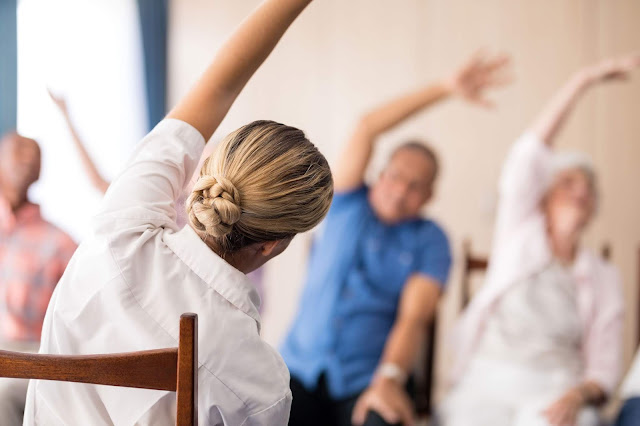Senior citizens and
falling seem to go together like peanut butter and jelly. According to the CDC
in the US alone, there are 29 Million falls each year for people 65 and older.
These falls result in 28,000 deaths! Private Home Care, Inc. wants to take a stand
on falls by putting out a few helpful tips to seniors on staying safe!
1. Medication-
While most medications are necessary its also important to consider alterations
if approved by a doctor. If the medication is needed to be sure to make sure the
senior is taking the medication correctly. It’s easy to read a label wrong or
to skip a dose. If the medication isn’t necessary to be sure to cut it out with
help from a doctor. One example is sleeping medications; most sleeping pills
can compromise balance and cause dizziness. For a senior who is already
off-balance sleeping, medication may need to be altered. Be sure to inform your
doctor about all medications you are taking as well as how they are making you
feel. Sometimes a daily diary is helpful to keep track of medication and how it
makes you feel. There may be an effective natural alternative that can help
seniors stay home and not increase their chance of fall risk. Check with your
doctor today on this!
3. Exercise-
Seniors balance and strength exercise are valuable in reducing fall risks. Tai
Chi is a popular exercise for seniors as it focuses on using breathing and
slow-moving muscle activity to improve balance. Research suggests tai chi
impact on fall risk with research study reveling that falls were reduced by 58%
for seniors who participated in the martial art for one hour twice a week.
4. Accessories-
There are a lot of different kinds of canes available to offer different levels
of support. Seniors who need a little support a single tipped cane may be
helpful. For others looking for more assistance, consider a cane with 4 tips or
a walker. There is a variety of walkers to check out also. Your doctor could
give you advice in this area. Seniors should wear rubber-soled, nonslip footwear
like sneakers, even when they are inside to help reduce the risk of falls.
5. Fear-
A fear of falling can cause seniors to reduce their activity level and limit
the time with loved ones. From a social perspective, isolation is a growing
issue among the aging population, so we need to help seniors not be fearful of
falling. Seniors can keep doing their day to day activities. They remain safe
in the place they call home.
These are only a few of the things that can help
a senior. Be sure to check with your doctor and make a plan that is right for
you!






Comments
Post a Comment